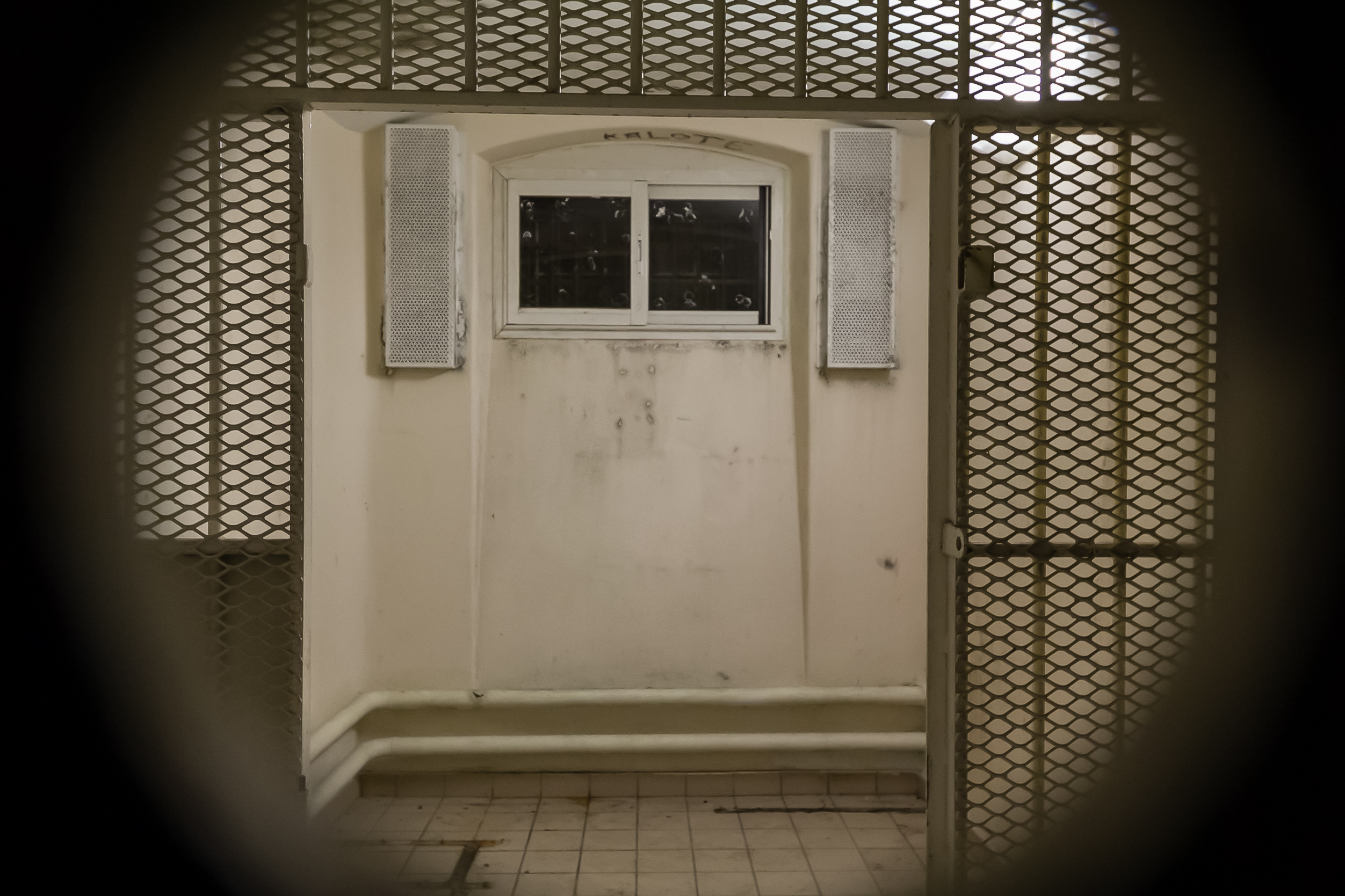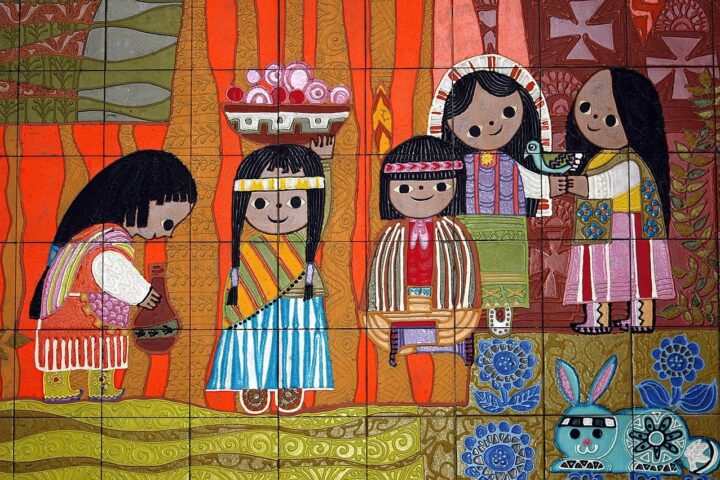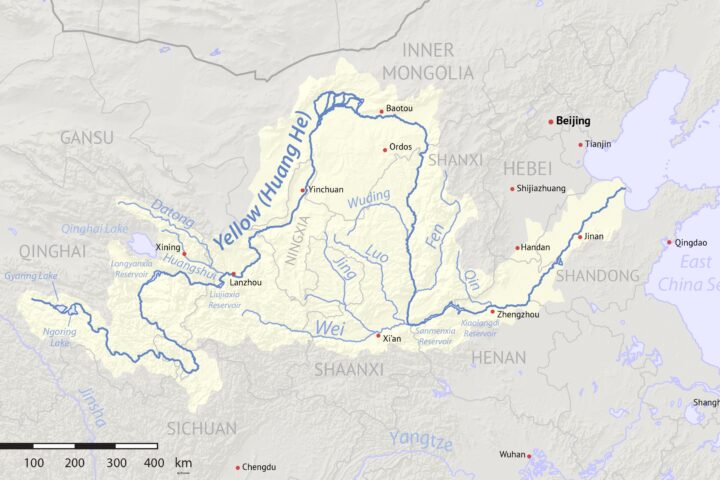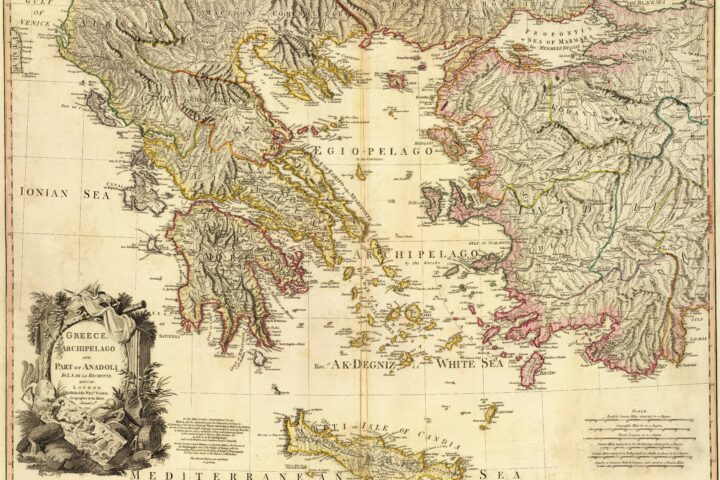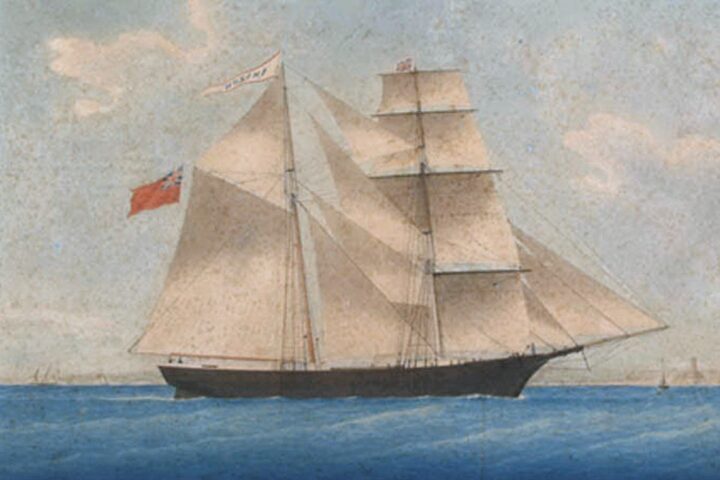Source: Wikimedia_By Édouard Hue (UserEdouardHue) – Own work, CC BY-SA 3.0
Learn about incidents when countries went through legitimate isolation periods. Understand what impact this had on the country in question and what made them bring an end to this decision.
In the age of globalization, it might seem unbelievable to think of countries which shut themselves away from contacting other nations. But this does and has happened very often in history. Many nations have felt the need to isolate themselves from the rest of the world because of different reasons. These periods of isolation align with the political and foreign philosophy of Isolationism.
An isolationist country believes in limited to no political or economic contact with other countries. This has been a recurring theme throughout history and most of the times, have been observed as a means of preserving the nation’s cultural identity, maintaining political control, and avoiding external influences.
Understanding all examples of isolation from history can really help in learning about the historical and political stances of such countries and the way power was balanced between independence and engagement from the outer world.
Japan
Japan had descended into a period of isolation under the auspices of the Tokugawa Shogunate and had severed connections with every external friend and foe in the seventeenth century.
The period preceding Sakoku was known as the Sengoku period, which literally translates to “Warring States” as a representation of the feudal warfare going on in the country. As daimyos (feudal lords) grappled for power in this period, the aftermath witnessed the emergence of the Tokugawa Shogunate which brought back stability. It was established by Tokugawa Ieyasu who unified Japan under a single rule. Economic growth, the creation of a strict feudal caste system, and peace characterize his rule.
Other than this, the Tokugawa Shogunate also brought about several edicts with the most famous one being the “Edict of 1635 which strictly prohibited travel outside Japan. This was done to limit the influence and spread of Christianity in the country. Soon, other edicts followed and all of them were also about banning foreign influence. The Sakoku policy was later rebranded as the “Edict to Expel the Portuguese” in 1639 and banned Portuguese merchants and missionaries from entering the country.
Hence, the country was jousted into a period of isolation for 200 years from 1639 to 1853 after which Japan reopened itself to the world again. The shogun did it mainly as a method of protecting local industries from external dominance, to control the market, stop the spread of Christianity, and prevent colonization.
Bhutan
Bhutan was closed off from the rest of the world since the longest time. It observed a period of isolation for most parts of its history. But the most notable period of isolation began from the mid-17th century until the mid-20th century.
The policy of isolation was adopted by King Zhabdrung Ngawang Namgyal who, just like the Tokugawa Shogunate, had unified the country in the 17th century. This was done to protect the small and peaceful country from colonization attempts from surrounding enemies, and to preserve the nation’s culture and identity. After the onset of the 20th century, some attempts were made now and then to improve bonds with India which was occupied by the British at that time. After India’s independence, Bhutan signed a peace treaty with the newly formed country in 1949. As a part of this treaty, India provided Bhutan an annual subsidy and a strip of land in Assam.
Later, King Jigme Dorji Wangchuk revolutionized the way the country operated and worked hard to reform the economy and the social system. Part of this strategy was the abolition of the period of isolation and Bhutan did so by joining the United Nations in 1971.
Albania
Albania had a fairly recent and smaller period of isolation. It was important nonetheless- contact was cut off from every other communist country. This started from the mid-1960s and went on until the early 1990s.
Communist dictatorship existed in Albania after Enver Hoxha had murdered all his political rivals and other potential enemies. The country had joined the United Nations in 1955 but the political environment of the nation wasn’t to be taken lightly. Hoxha believed in a very strict interpretation of the philosophy of Marxism-Leninism and rejected the philosophies of even other communist countries. The last straw in his descent to dictatorship was the breakdown of the alliance between the Soviet Union and Albania in 1961. It deteriorated further when the alliance with China also broke down in 1978 and Hoxha decided it was time to adopt the policy of isolation in the country. According to articles, this isolation was way worse than North Korea’s and even the North Korean government was a bit more tuned in with the world as compared to Albania in the 1980s.
It finally ended in 1991-1992 after Hoxha died in 1985 and communism failed to leave its mark after his death.
Tibet
Tibet, like Bhutan, wasn’t the most politically active and open to other countries either. This nation had also shut the doors for foreign influence to sneak in but China always did have the upper hand in their situation.
The main reason behind this country’s isolation wasn’t political, unlike the other nations in this list. It was purely because of Tibet’s geographical position in the mountainous regions of the Himalayas. The nation had been so hard to reach and equally hard to conquer because of the challenging terrain it existed in. This was overcome by several different empires in the years to come but was a formidable challenge nonetheless.
But after a proper kingdom was established in the country after the 9th century, Tibet took time off from contacting the foreign world to focus on internal development. It wasn’t until 1240 when contact with Mongols was made and the country was jousted into external conflicts yet again. Once they conquered Tibet, the country operated with the help of both the local and the Mongol groups to function properly until the 17th century. The Dalai Lamas regained control after this and ruled peacefully for quite some time.
The political conflict with China grew out of bounds, however, after 1951 and the induction of Tibet into the People Republic’s of China was the beginning of unrest in the country. The 14th Dalai Lama currently resides in Dharamshala, India after he had to leave his country during the 1959 Tibetan uprising.
Ethiopia
Ethiopia was isolated from the rest of Africa and the world, and its isolation was rooted into the ancient history of the country. This happened mostly because of religious reasons- Ethiopia is one of the world’s oldest Christian nations while its surrounding neighbors are Muslim majorities.
The country was able to successfully resist European colonization mostly with the exception of a brief Italian occupation from 1936 to 1941. Other than this, the country has steered clear of external influence. This went on till the late 19th century when Emperors Menelik II and Haile Selassie tried to modernize the country. Their attempts paved the path for future foreign delegations and the country became politically active after the 1990s.
North Korea
North Korea’s political isolation exists till date and has its origins rooted in deep political embroil. It all began after the Korean War between 1950 and 1953 under the leadership of Kim Il-sung who firmly believed in the Juche ideology. It entails the importance of self-reliance and independence from foreign influence.
The country soon became part of the communist bloc but still maintained its authority and refused to be dragged around by any other country. The Soviet Union and China were prime allies but this also ended after the Sino-Soviet split which made the country pursue the path of self-reliance. The decline of the Soviet Union, however, jousted North Korea’s economy into ruin and the period of “Arduous March”, which included a famine and more economic issues, deepened the country’s isolation and unwillingness to rely on foreign aid.
After the onset of the 21st century, foreign relations with other countries deteriorated completely. Furthermore, the development of nuclear weaponry led to complete isolation from the rest of the whole world.
Today, North Korea stands alone because of its status as one of the most isolated countries in history.
Resources
- Isolationism | Definition & Facts | Britannica. (2024). In Encyclopædia Britannica. https://www.britannica.com/topic/isolationism-foreign-policy
- Why did Japan close its doors? Understanding the Sakoku Period. (2014). History Skills. https://www.historyskills.com/classroom/modern-history/sakoku/
- Aditya Gowdara Shivamurthy. (2023, July 21). The Changing Contours of Bhutan’s Foreign Policy and the Implications for China and India. Orfonline.org; OBSERVER RESEARCH FOUNDATION ( ORF ). https://www.orfonline.org/research/the-changing-contours-of-bhutan-s-foreign-policy-and-the-implications-for-china-and-india
- History of Bhutan | Events, People, Dates, & Facts | Britannica. (2024). In Encyclopædia Britannica. https://www.britannica.com/topic/history-of-Bhutan
- Shakabpa, Wangchuk Deden (1967). Tibet: A Political History. Yale University Press. ISBN 978-0-300-00898-2.
- Buell, Paul D. (2011). “Tibetans, Mongols and the Fusion of Eurasian Cultures”. In Akasoy, Anna; Burnett, Charles; Yoeli-Tlalim, Ronit (eds.). Islam and Tibet: Interactions Along the Musk Routes. Ashgate Publishing. pp. 188–208.
- Shakya, Tsering (January 1999). The Dragon in the Land of Snows: A History of Modern Tibet Since 1947. Pimlico. ISBN 978-0-7126-6533-9. OCLC 40840911.
- History of Ethiopia | Events, People, Dates, Maps, & Facts | Britannica. (2024). In Encyclopædia Britannica. https://www.britannica.com/topic/history-of-Ethiopia
- Daminov Ildar. (2021, June 7). North Korea’s Isolation Is Deepening. Thediplomat.com; The Diplomat. https://thediplomat.com/2021/06/north-koreas-isolation-is-deepening/
North Korea’s unparalleled self-isolation must cease: UN expert. (2023). OHCHR. https://www.ohchr.org/en/press-releases/2023/03/north-koreas-unparalleled-self-isolation-must-cease-un-expert

